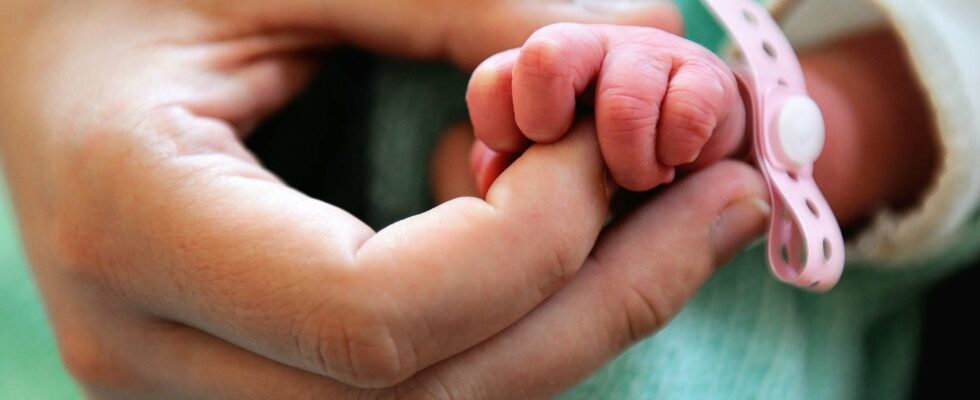Fewer maternity wards allowing births, but more “safety” and “reinforced postpartum monitoring”: a Senate report called, this Wednesday, September 11, to “transform the provision of perinatal care” in the face of a “deterioration” in France of indicators on the health of mothers and newborns.
The report produced at the initiative of the centrist parliamentary group in the Senate, RDSE (Democratic, Social and European Rally), once again relaunches the thorny debate on the future of small maternity units, between the fight against perinatal deserts, rationalisation of the provision of care and good care for the mother and child.
In fifty years, the number of maternity hospitals has been divided by three in France, and several recent reports (Academy of Medicine, Court of Auditors) have suggested further reducing the supply of maternity hospitals in the territory, to the great displeasure of local elected officials.
Because after good results at the beginning of the 21st century in terms of perinatal health (from pregnancy to the child’s first birthday), France today has “more deaths of newborns and babies” than many European countries, ranking 22nd for infant mortality, warns the Senate report.
“Beyond six months of pregnancy, one in a hundred babies is stillborn or dies during the first week” and 7% of births are premature, leading to a significant “care burden” for hospitals, which are already strained by shortages of caregivers. Physical and psychological complications are also too “frequent” among mothers, the document notes.
“Inevitable” restructuring
Among the causes identified are later pregnancy, poor health of mothers (obesity, gestational diabetes, poverty, etc.) and also the “fragility” of the healthcare provision.
The rapporteur, Véronique Guillotin (Radical Party), deplores a lack of neonatal intensive care beds, often incomplete and unstable care teams, with costly recourse to temporary staff, unexpected “closures” that are sometimes prolonged, or even increased risks, in the event of complications, in certain establishments, with significant territorial disparities.
She also notes the decline in the birth rate (-20% since 2010) and a growing demand for “less medicalized” births (“physiological” births, at home, etc.), considering the current network “unsuitable” for needs, resources and safety requirements. “Inevitable”, the restructuring of the network “must be organized”, so as not to be “suffered”, estimated Véronique Guillotin on Wednesday, during a press conference. “It must be conducted, not on the basis of activity thresholds” (number of births per maternity unit), but from an assessment of structures and needs by birth basin, she argues.
It calls for establishing specific indicators, to move towards “fewer technical platforms”, but with a “high level of security”, allowing “a plurality of birth plans”. This must be accompanied by a “strengthening of the local offer” for prenatal and postnatal monitoring, and in terms of emergency medical transport.
Parents’ follow-up
It will therefore be necessary to “transform large structures”, “strengthen certain small fragile maternity units” but considered “indispensable” for access to care, “particularly in mountainous or island areas”, but also “transform certain non-viable structures into maternity units without deliveries”, explained Véronique Guillotin.
“We must get it out of our heads that a maternity ward is only the act of giving birth”: “there are IVGs, PMA (medically assisted procreation), pre-natal and post-natal monitoring”, “essential” services which could disappear in the event of “forced” closures, observed the chair of the information mission, Annick Jacquemet.
These small maternity units could offer “enhanced monitoring” of the postpartum period, a significant “gap” in the system, as young parents are often lost when they return home, and are susceptible to false information, which must be combated, continued Véronique Guillotin.
The report also recommends “guaranteeing the number of professionals (gynecologists-obstetricians, paediatricians, anaesthetists-resuscitators, midwives) by providing more training and “improving the attractiveness” of careers and revising by 2025 the decrees, dating from 1998, which notably set “the supervision ratios” for births. Finally, it advocates guaranteeing, throughout the country, a minimum of “one neonatal resuscitation bed for every 1,000 births”.
